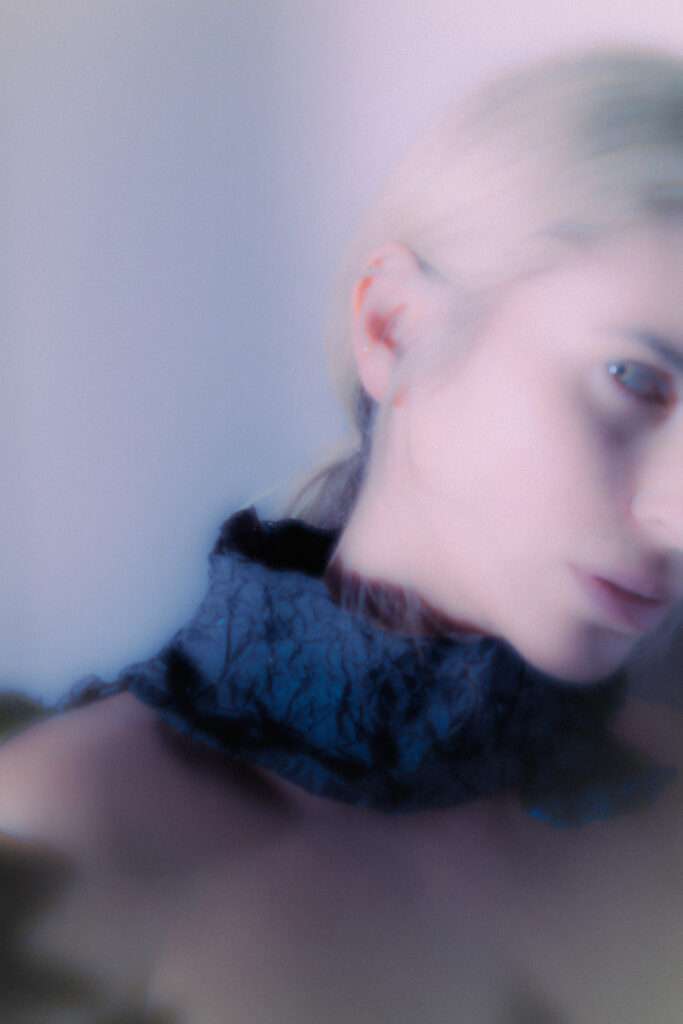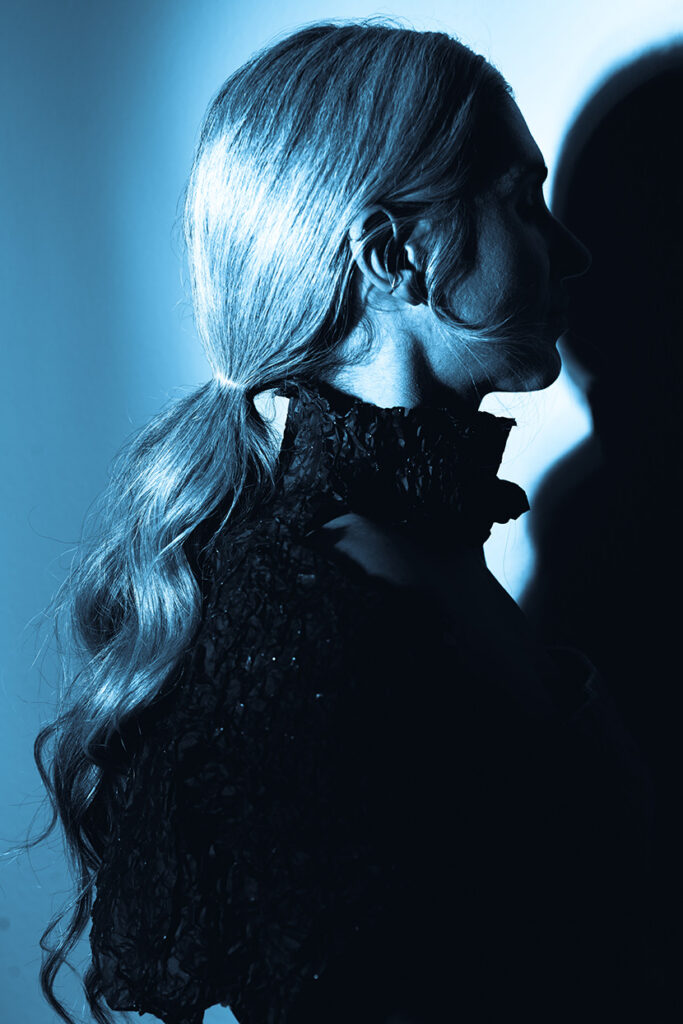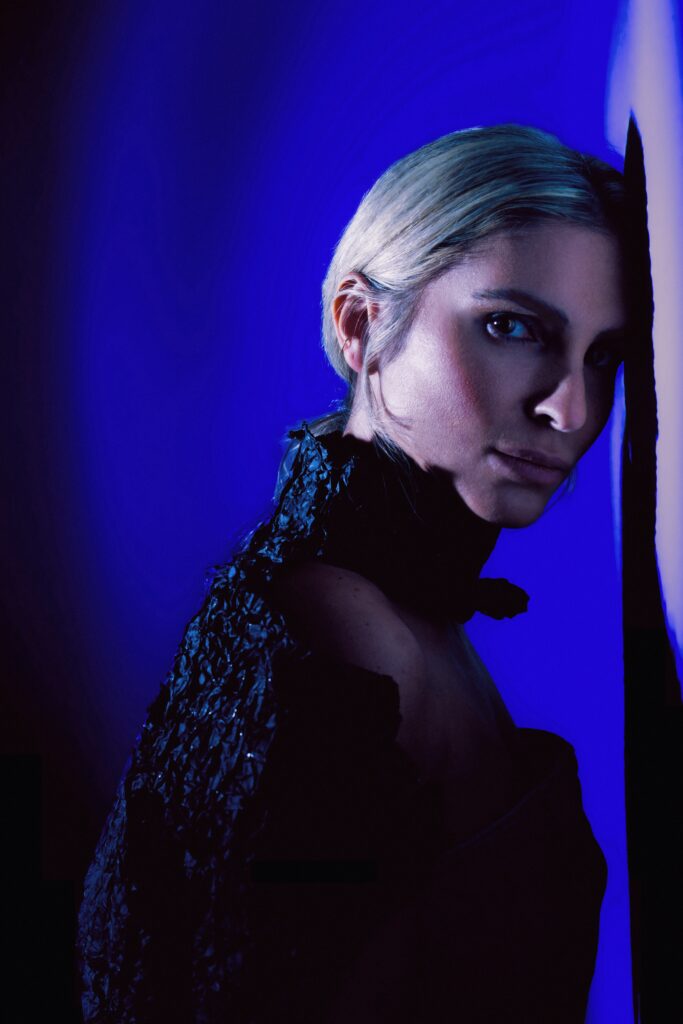STEYA ci racconta “Dopamine EP”. L’Ep ( lo trovi qui) segna il debutto discografico dell’astro nascente dell’etichetta IMF, rilasciata il 12 luglio. Abbiamo avuto l’opportunità di intervistare la DJ belga, che ci ha offerto uno sguardo approfondito sulla sua musica e sul suo progetto.
STEYA, originaria di Anversa, città che ha marcato i suoi primi passi nel mondo del clubbing e della musica elettronica, ha poi continuato il suo percorso artistico a Berlino. Qui si è immersa nella scena underground, diventando resident al RSO della capitale tedesca e al club Grelle Forelle di Vienna. Col tempo, ha conquistato palcoscenici come il Tomorrowland, Exhale e il Basement di New York.
Il 2021 ha visto STEYA lanciare i suoi primi singoli, a partire da “Neon Reecho” nella compilation RAW’s Third Eye, seguiti da “Elysian” e “Prototype X”. L’anno successivo, ha iniziato una collaborazione con l’etichetta IMF di Marcel Fengler, che l’ha proiettata nel panorama elettronico europeo.
Le tracce di “Dopamine” trasudano le esperienze e gli anni trascorsi nei club del nord Europa. Il sound di STEYA è penetrante e vibrante, permeato dall’influenza della scena underground berlinese. Ogni brano dell’album è unico: la title track “Dopamine” è un inno al dancefloor con i suoi cambi di ritmo coinvolgenti, mentre “Fast Life” si distingue per una linea di basso persistente e synth dinamici.
La nostra intervista con STEYA ci ha permesso di esplorare i dietro le quinte di questo progetto durato due anni e della sua scalata al successo.
Ciao STEYA, benvenuta su Parkett Channel. Sei nata ad Anversa, in un Belgio, e poi ti sei trasferita a Berlino. Come ha influenzato la tua carriera questo cambiamento di città e qual è il tuo rapporto attuale con Berlino?
Ciao ragazzi, sono nata a Naharija e mi sono trasferita ad Anversa quando avevo solo pochi mesi, quindi sono cresciuta in Belgio. Il mio trasferimento a Berlino ha avuto un impatto profondo sui miei gusti musicali e sulla mia carriera. La scena musicale qui ha influenzato enormemente il mio stile e la mia creatività. Berlino mi ha offerto innumerevoli opportunità di crescita come artista e di esibirmi in alcuni locali straordinari. Questa energia è ciò che ho sentito in città fin dall’inizio e continua a ispirarmi ancora oggi. Amo davvero Berlino, ed è un luogo che orgogliosamente chiamo casa.
Hai menzionato “Knights of the Jaguar” di DJ Rolando come un inno personale. Come ha influenzato questo brano il tuo stile musicale?
Ricordo che questo brano veniva suonato spesso ad Anversa quando ero adolescente e durante le mie prime esperienze nei club. È stata sempre una delle mie tracce preferite. “Knights of the Jaguar” di DJ Rolando ha influenzato profondamente il mio stile musicale con la sua combinazione unica di melodie soulful e intensità ritmica. L’energia potente e la profondità emotiva del brano mi hanno ispirato a creare musica che risuona sia a livello fisico che emotivo. È un perfetto esempio di come la musica possa essere sia senza tempo che in continua trasformazione, e continua a influenzare il mio lavoro ancora oggi.
Quali altri brani o artisti hanno avuto un impatto significativo sulla tua crescita musicale STEYA?
Durante i miei primi anni nei club, un amico che lavorava negli eventi del Café d’Anvers mi aiutava a entrare di nascosto nei club di Anversa quando avevo solo 16 anni. All’epoca, club come il Café d’Anvers erano influenzati da eventi come Circoloco e Cocoon e il loro suono tipico, che era abbastanza diverso dal techno più incisivo che ascolto oggi. Un brano che spicca da quei tempi è “Marionette” di Mathew Jonson—la profondità illimitata del brano mi dà ancora oggi i brividi. Successivamente, quando mi sono trasferita a Vienna e soprattutto a Berlino, i miei gusti sono evoluti verso un stile techno più incisivo. Un altro brano che ha avuto un impatto significativo sulla mia crescita musicale è stato “Process 1” di LSD su Ostgut Ton nel 2017, ad esempio. Già si potevano notare evoluzioni nel mio sound.

Hai menzionato di aver avuto un’educazione ebraica rigorosa. Come ha influenzato questo il tuo rapporto con il clubbing e la musica elettronica?
Avere un’educazione ebraica rigorosa ha giocato un ruolo significativo nel plasmare il mio rapporto con il clubbing e la musica elettronica. Crescere in un ambiente severo e disciplinato ha fatto sì che le mie prime incursioni nella scena dei club sembrassero un atto di ribellione e un modo per esplorare un mondo molto diverso dalla mia educazione. Il contrasto tra i valori tradizionali con cui sono cresciuta e la natura liberatoria ed espressiva della musica elettronica e della cultura dei club ha creato una dinamica unica per me. Mi ha anche insegnato ad apprezzare la diversità e l’unità che la musica porta, e queste esperienze hanno influenzato profondamente il mio approccio alla creazione e alla condivisione della musica. Il clubbing è diventato non solo un passatempo, ma una parte significativa della mia identità e della mia espressione artistica.
Potresti raccontarci come è iniziata la tua collaborazione con Marcel Fengler e l’etichetta IMF, e come ha influenzato il tuo sviluppo professionale?
La mia collaborazione con Marcel Fengler e l’etichetta IMF è iniziata attraverso una passione condivisa per il techno innovativo e all’avanguardia. La reputazione di Marcel per produzioni di alta qualità e il suo orecchio attento per suoni particolari mi hanno spinta a lavorare con lui e con l’etichetta IMF. Lavorare a stretto contatto con Marcel mi ha insegnato molto sulle tecniche di produzione, sull’importanza di mantenere l’integrità artistica e sulle sfumature dell’industria musicale.
Da quando suoni, qual è stato il momento più significativo che hai vissuto sulla pista da ballo?
Ricordo che era uno dei miei primi concerti e ero super nervosa. Molti dei miei amici mi hanno fatto una sorpresa e sono venuti a sostenermi, e questo mi ha mostrato quanto sia importante il supporto e quanto restituisca. La loro presenza e incoraggiamento mi hanno aiutata a superare il set, e vederli godersi la musica ha reso l’esperienza indimenticabile. È stato un momento incredibile che ha sottolineato l’importanza della comunità e il potere di avere una forte comunità.
Hai detto che il produttore Hertz è stato un’ispirazione durante tutta la tua carriera. Come ha influenzato specificamente il tuo percorso artistico?
Ho suonato molte delle sue tracce sin dall’inizio dei miei concerti. Purtroppo non ho ancora avuto l’opportunità di incontrarlo di persona, ma mi piacerebbe assistere ai suoi set dal vivo nel prossimo futuro.
Com’è stato collaborare con due dei tuoi idoli, Rolando e Hertz, nella produzione del tuo EP di debutto? Che valore hanno aggiunto ai brani “Dopamine (Hertz Remix)” e “Things You Never Said (Rolando Remix)”?
Collaborare con i miei idoli Rolando e Hertz è stato un sogno che diventa realtà e sono davvero felice di averli entrambi come remixer nel mio EP di debutto. I loro remix di “Dopamine” e “Things You Never Said” hanno aggiunto un valore immenso ai brani. Hertz ha portato la sua precisione nel sound design e nell’intensità ritmica a “Dopamine,” rendendolo più impattante. Rolando ha influenzato “Things You Never Said” con influenze del Detroit techno, aggiungendo profondità e soulfulness.
Quale direzione artistica intendi seguire nei prossimi anni? Hai già nuovi progetti o collaborazioni in mente?
Attualmente, ho diversi progetti e collaborazioni entusiasmanti in arrivo. Non vedo l’ora di lavorare con artisti che condividono la mia passione per la musica. Sto pianificando di rilasciare una traccia in collaborazione con OGUZ nel prossimo ‘HARDPROOF’ VA06. Nonostante proveniamo da background musicali diversi, condividiamo una grande passione per la techno, fattore che ci ha unito. Inoltre, sto collaborando con Marcel Fengler su un remix per la nuova etichetta ‘Misguided’, di DLV. In generale, sono impegnata a rimanere fedele alla mia visione artistica mentre abbraccio nuove opportunità di sperimentazione e crescita nel mondo della musica elettronica.
ENGLISH VERSION
Hi STEYA, welcome to Parkett Channel. You were born in Antwerp, Belgium, and later moved to Berlin. How has this change of city influenced your career and what is your current relationship with Berlin?
Hi guys, I was born in Naharija and moved to Antwerp when I was only a few months old, so I grew up in Belgium. My move to Berlin had a profound impact on my musical tastes and career. The music scene that has hugely influenced my style and creativity. Berlin has offered me countless opportunities to grow as an artist and perform in some amazing venues. This energy is what I felt in the city from the beginning and continues to inspire me today. I truly love Berlin, and it is a place I proudly call home.

You mentioned “Knights of the Jaguar” by DJ Rolando as a personal anthem. How has this track influenced your musical style?
I remember this track was being played a lot in Antwerp when I was a teenager and during my first clubbing experiences. It’s been one of my all-time favorite tracks. “Knights of the Jaguar” by DJ Rolando has deeply influenced my musical style with its unique blend of soulful melodies and rhythmic intensity. The track’s powerful energy and emotional depth have inspired me to create music that resonates on both a physical and emotional level. It’s a perfect example of how music can be both timeless and transformative, and it continues to influence my work to this day.
What other tracks or artists have had a significant impact on your musical growth?
During my early clubbing years, a friend deeply involved in events at Cafe d’Anvers helped me sneak into clubs around Antwerp when I was only 16 years old. Back then, clubs like Cafe d’Anvers were influenced by events like Circoloco and Cocoon and their typical sound, which was quite different from the punchier techno I listen to nowadays. One track that stands out from those times is “Marionette” by Mathew Jonson—the limitless depth of the track still gives me goosebumps today. Later on, when I moved to Vienna and especially to Berlin, my taste evolved towards a punchier direction of techno. Another track that has significantly impacted my musical growth was “Process 1” by LSD on Ostgut Ton in 2017, for example. Some progression in my sound was apparently already done.
You mentioned having a strict Jewish upbringing. How has this influenced your relationship with clubbing and electronic music?
Having a strict Jewish upbringing playedk a significant role in shaping my relationship with clubbing and electronic music. Growing up in a structured and disciplined environment made my initial forays into the club scene feel like an act of rebellion and a way to explore a world vastly different from my upbringing. The contrast between the traditional values I was raised with and the liberating, expressive nature of electronic music and club culture created a unique dynamic for me. It also taught me to appreciate the diversity and unity that music brings, and these experiences have deeply influenced my approach to creating and sharing music. Clubbing became not just a pastime, but a meaningful part of my identity and artistic expression.
STEYA, Could you tell us about how your collaboration with Marcel Fengler and the IMF label began, and how it has influenced your professional development?
My collaboration with Marcel Fengler and the IMF label began through a shared passion for innovative and boundary-pushing techno. Marcel’s reputation for high-quality productions and his keen ear for unique sounds drew me to work with him and the IMF label. Working closely with Marcel has taught me a lot about production techniques, the importance of maintaining artistic integrity, and the nuances of the music industry.
Since you’ve been playing, what has been the most significant moment you’ve experienced on the dancefloor?
I remember, it was one of my first gigs and I was super nervous. A lot of my friends surprised me and were there to support me, and it showed me how important support is and how much it gives back to you. Their presence and encouragement helped me get through the set, and seeing them enjoy the music made the experience unforgettable. It was an amazing moment that underscored the significance of community and the power of having a strong community.

You said that producer Hertz has been an inspiration throughout your career. How has he specifically influenced your artistic journey?
I’ve been playing a lot of tracks by him since the very beginning of my gigs. Unfortunately, I haven’t had the chance to meet him in person yet, but I would love to experience his sets live in the near future.
What was it like collaborating with two of your idols, Rolando and Hertz, on the production of your debut EP? What value did they add to the tracks “Dopamine (Hertz Remix)” and “Things You Never Said (Rolando Remix)”?
Collaborating with my idols Rolando and Hertz was a dream come true and I’m really happy to have them both as a remixer on my debut EP. Their remixes of “Dopamine” and “Things You Never Said” added immense value to the tracks. Hertz brought his precision in sound design and rhythmic intensity to “Dopamine,” elevating its impact. Rolando infused “Things You Never Said” with Detroit techno influences, adding depth and soulfulness.
What artistic direction do you intend to pursue in the coming years? Do you already have new projects or collaborations in mind?
Currently, I have several exciting projects and collaborations coming up. I’m looking forward to working with like-minded artists who share my passion for music. I’m planning to release a collab track with OGUZ on the upcoming ‘HARDPROOF’ VA06. Despite coming from different musical backgrounds, we share a huge passion for techno, which brought us together. Additionally, I am collaborating with Marcel Fengler on a remix for the new imprint ‘Misguided’, by DLV. Overall, I’m committed to staying true to my artistic vision while embracing new opportunities for experimentation and growth in the world of techno music.
